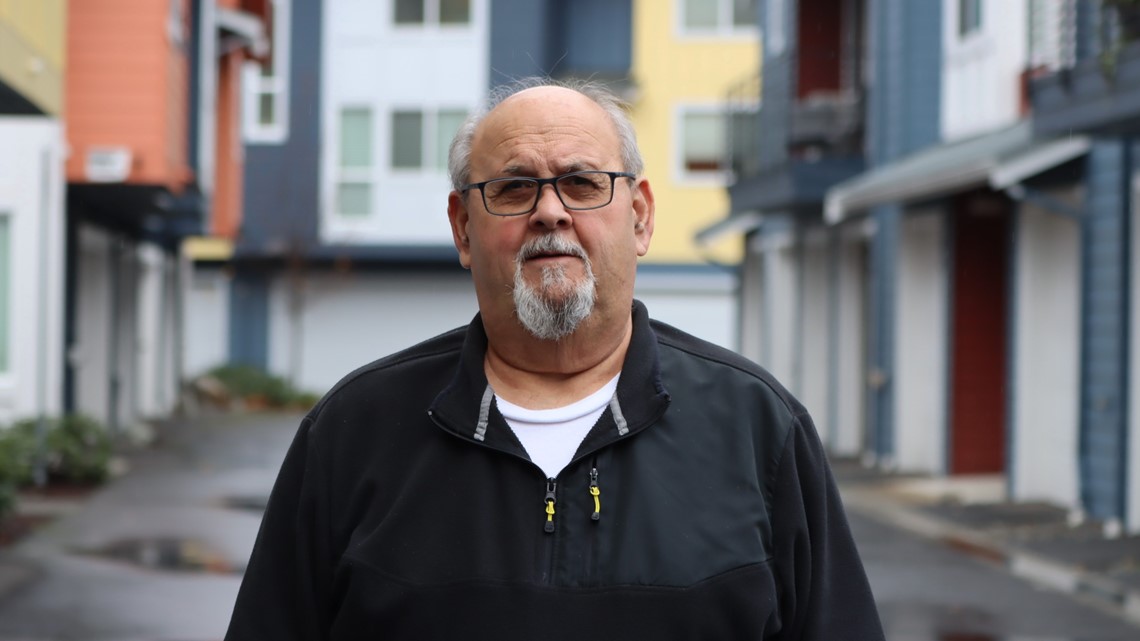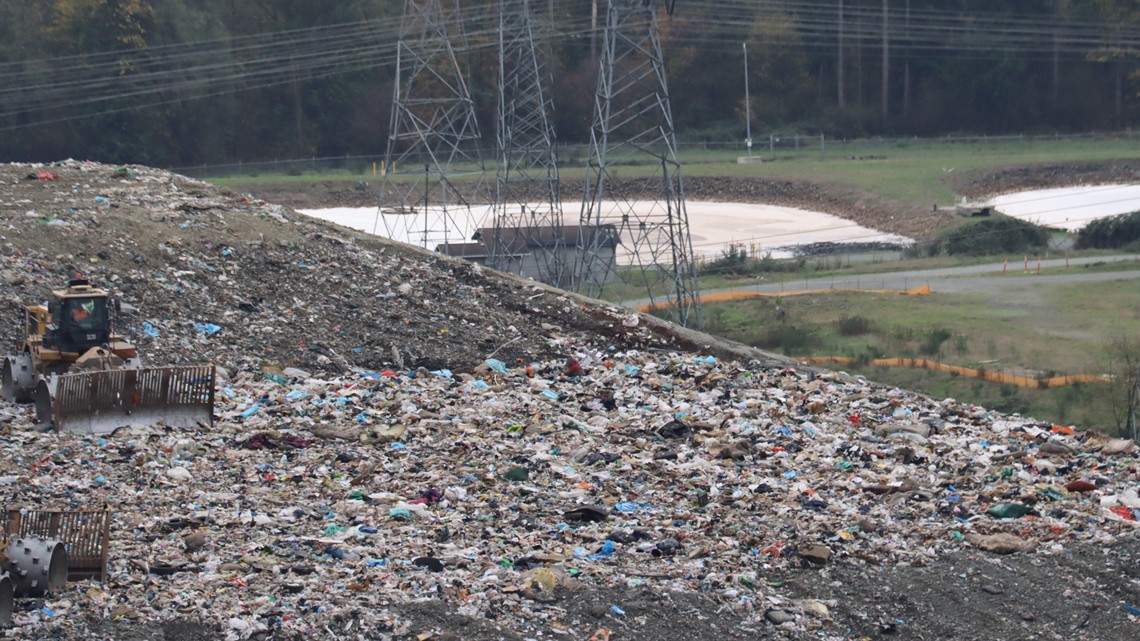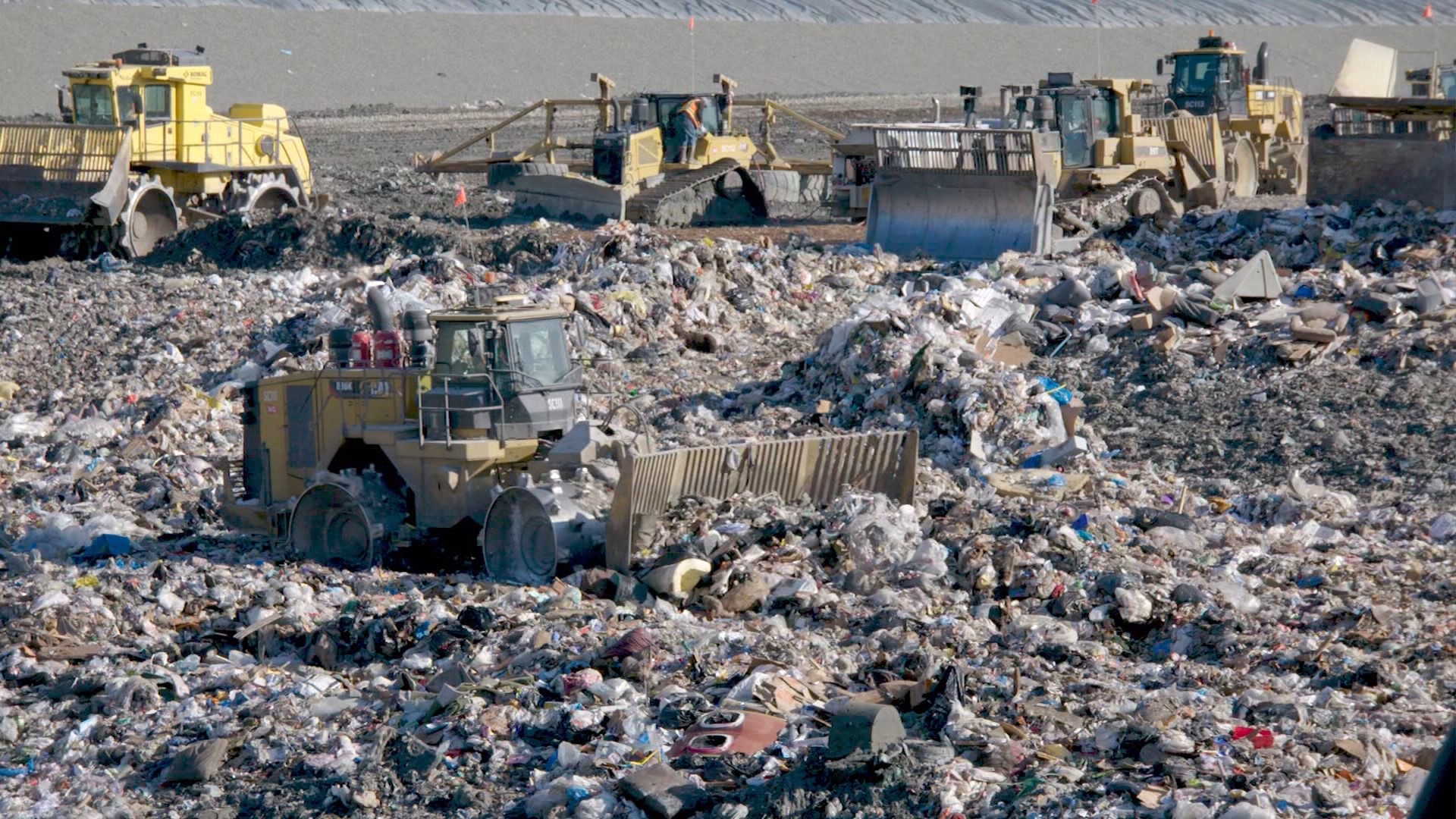MAPLE VALLEY, Wash. — The Washington State Department of Labor & Industries (L&I) is inspecting conditions at a King County landfill with elevated levels of arsenic, which some employees claim has negatively impacted workers' health.
The state agency opened a health and safety inspection into King County’s Cedar Hills Regional Landfill in Maple Valley on Dec. 14, 2023, according to L&I spokesperson Matt Ross. He said the inspection is focusing on how the county evaluates exposure to arsenic and how it trains employees on chemical hazards and personal protective equipment (PPE).
“[We’re] making sure that managers at the site have the tools or the equipment in place to evaluate effectively whether their employees are seeing arsenic exposure at a dangerous level,” Ross added. "We're looking at ... how they monitor it, how they test for it, what they're looking for."
The probe comes in response to a November KING 5 investigation, which highlighted health and safety concerns from landfill workers about exposure to the arsenic on-the-job. KING 5’s reporting revealed that for a decade, King County repeatedly discovered high levels of arsenic at the Cedar Hills landfill – violating state and local rules that exist to protect the environment and public health.
Multiple landfill employees accused their bosses of failing to adequately inform workers or protect them from the highly toxic chemical, including a veteran truck driver with respiratory issues and at least two King County engineers who were closely involved in the county’s efforts to deal with the arsenic problem.
Arsenic is a naturally occurring chemical that is found in food, water, soil and the air. It can also be released into the environment by certain agricultural and industrial processes.
The inorganic form of arsenic is a highly toxic carcinogen that can cause negative health impacts from long-term exposure to high levels. According to the World Health Organization, adverse health effects can include heart disease, lung disease and cancer, but it can be difficult to distinguish the medical conditions caused by arsenic from conditions induced by other factors.
Jon Demello, 75 of North Bend, is one of the workers who voiced concerns. The 30-year veteran Cedar Hills truck driver said he recently filed workers compensation claims after his doctors informed him in December that they believe his respiratory problems are work related.
“They said that the arsenic is one of the elements that was involved in creating the lesions on my lungs, in addition to asbestos and the dust up there,” Demello said. “It really hurts to hear that, you know, that these elements are the cause of your illness. It just blows me away.”


Both the King County Public Health department and the county's Solid Waste Division, which manages Cedar Hills, said there is no public health risk from arsenic at the landfill.
In a statement Thursday, a Solid Waste Division spokesperson said the county conducted air quality testing in December at the landfill and seven transfer stations, which showed “no detectable airborne arsenic levels.”
“We have shared these results with our employees, and continue to engage them in making workplace safety and compliance with safety regulations the organization’s top priority,” wrote Annie Kolb-Nelson, spokesperson for the King County Solid Waste Division.
Kolb-Nelson said the county is cooperating with the L&I inspection, adding that it’s too early to comment on the probe because the state’s work is still in progress.
Ross, the L&I spokesperson, said the state department has up to six months to complete its inspection and issue findings.
This isn't the first time L&I has stepped in to investigate the Cedar Hills Regional Landfill for arsenic-related concerns.
In 2021, the agency’s Division of Occupational Safety and Health fined King County $3,000 and ordered the Cedar Hills landfill to correct workplace safety violations affecting a King County engineer and her team.
L&I investigators found, in part, that Cedar Hills did not train employees on the hazards of arsenic, did not evaluate employee exposure to airborne inorganic arsenic during a key timeframe, and did not make sure employees who were sampling arsenic-contaminated wastewater used personal protective equipment, according to a review of the L&I citation.
“The story you covered raised some of the same issues that we saw at the site back in 2021,” Ross said. “It made it clear that workers at the site still had some of the same concerns and worries about the potential for arsenic exposure that was happening there.”


Demello said he was relieved when an inspector from L&I's Division of Occupational Safety and Health called him this month to ask questions about the conditions at his workplace.
“It's good to know that they are being monitored right now. They are being checked,” he said. “That does feel good. You know, if I can save one person from going through what I'm going through, then it's all worth it.”
Regulatory records show the elevated levels of arsenic at Cedar Hills were discovered as part of King County’s process of managing its landfill gas – a natural byproduct of decomposing trash. Landfill gas contains about 50% methane, 50% carbon dioxide and a small percentage of toxic chemicals, according to the Environmental Protection Agency (EPA).
To prevent hazardous chemicals from escaping into the atmosphere, landfills typically choose to burn the gas or convert it to be used as a renewable energy resource. Since 2009, a private company called Bio Energy Washington (BEW) has contracted with the county to capture the landfill gas and convert it into natural gas. The operation provides enough gas for about 19,000 homes each year, according to the company.
That process of creating natural gas produces a liquid called “condensate,” which contains much of the arsenic that led to trouble for both King County and the energy company that operates at the landfill.
BEW and King County remain in a stand off – a legal battle – about who is responsible for causing and addressing the elevated arsenic. The county alleges that BEW’s industrial processes led to the elevated levels. BEW, which has shut down operations amid the lawsuit, claims King County's landfill gas already contained too much arsenic when the company received it.
Since 2018, the King County Industrial Waste Program, which provides regulatory oversight of the landfill, has found Cedar Hills to be in "significant noncompliance" of its wastewater permit for exceeding allowable arsenic levels.

